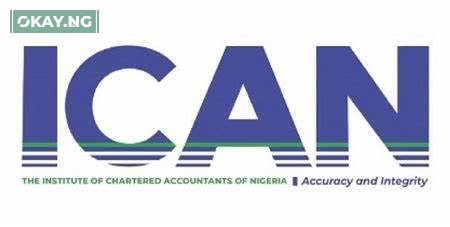Fortifying Nigeria’s fiscal reform agenda and enhancing accountability within the public sector, the Institute of Chartered Accountants of Nigeria (ICAN) has introduced a comprehensively revised professional examination syllabus. The unveiling, which took place recently in Lagos, signals ICAN’s commitment to equipping future accounting professionals with the cutting-edge skills and knowledge necessary to navigate the evolving economic landscape and uphold the highest standards of financial transparency.
This significant update to the curriculum closely aligns with ICAN’s own Accountability Index, a crucial instrument used to evaluate transparency in public financial management across the nation. According to Chibuzor Anyanechi, Chairman of the Syllabus Review Committee, the revamped syllabus reinforces core competencies in critical areas such as accountability, fiscal responsibility, and sustainability.
“The syllabus embeds key provisions of the Finance Acts (2020–2023) and now also aligns more closely with the expectations of the ICAN Accountability Index, promoting transparency and efficient public financial management,” Anyanechi stated at the launch. He emphasized the particular significance of this alignment in the Nigerian context, where the issue of public financial accountability remains paramount.
By proactively integrating recent legislative updates, including anticipated tax reforms, ICAN is ensuring that its students are well-prepared to navigate intricate regulatory frameworks and actively contribute to ongoing public transparency efforts. The revised syllabus is slated to take effect from the November 2025 examination diet.
Beyond public sector reforms, the updated curriculum demonstrates a forward-thinking approach by incorporating crucial modules on emerging trends such as Artificial Intelligence, Sustainability Reporting, and Responsible Finance. A key highlight is the deliberate integration of digital and technology-related skill sets, recognizing the increasing demands of a rapidly digitalizing global economy.
“Technology is carefully and adequately embedded in the new syllabus,” affirmed Anyanechi, highlighting modules that delve into the Internet of Things, artificial intelligence, and other pivotal frontier technologies. This emphasis on technological agility is deemed essential for Nigerian accountants operating in an increasingly interconnected world, requiring them to be “globally agile.”
In a departure from its traditional five-year review cycle, ICAN announced that its syllabus will now undergo updates every three years. This change reflects the institute’s responsiveness to the accelerating pace of change in the professional landscape.
Read Also: ICAN Launches Specialized Aviation Chapter to Bolster Financial Excellence in Nigeria’s Skies
Furthermore, ICAN has introduced a progressive new waiver framework. This framework allows candidates to seek exemptions from previously failed subjects, provided they subsequently obtain relevant qualifications that demonstrate the required competence. “It’s a recognition that learning is not always linear,” explained Anyanechi, characterizing the move as a step towards a more skill-based and flexible certification system.
ICAN’s 60th President, Davidson Alaribe, underscored the critical importance of this reform in maintaining the global competitiveness of Nigerian accounting professionals. Drawing an analogy to the continuous learning in other professions, he remarked, “Even native doctors go for further training. The world is changing at a geometric rate, and our students must be in line with current business trends. Even the tax reforms are already being embedded in anticipation that the bill will be passed into an Act. As soon as it’s passed into an act, specific modules will be introduced that will be examined six months after being signed by the president.”
Alaribe clarified that while the new structure retains the established 15-subject format, it features revised subject names and significantly enriched content. To ensure a smooth transition and effective learning, he added that “Pilot questions and mock exams will be introduced ahead of the rollout to guide students and assess implementation.”
The comprehensive review process involved extensive collaboration with a diverse range of global and national stakeholders. These included the International Federation of Accountants, the Financial Reporting Council of Nigeria, the Securities and Exchange Commission, and leading professional services firms, ensuring a well-rounded and relevant curriculum that meets international standards and local needs. This collaborative approach underscores ICAN’s commitment to maintaining the highest levels of professional excellence and contributing meaningfully to Nigeria’s economic development through a robust and future-ready accounting profession.












